MercoPress. South Atlantic News Agency
Tag: Real
-
Friday, September 7th 2012 - 06:33 UTC
Rousseff announces major shake-up of Brazilian costs beginning with lower power rates
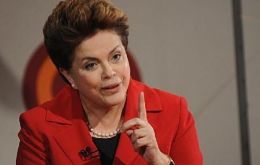
Brazil will cut energy costs for companies and consumers while pressuring banks to lower lending rates to accelerate growth, said President Dilma Rousseff in a speech on national television to commemorate the country’s independence.
-
Monday, August 6th 2012 - 07:29 UTC
Petrobras posts loss in second quarter; blames depreciation of the Real
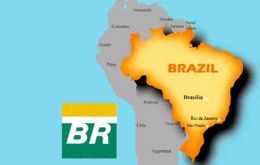
Brazil state-controlled oil company Petrobras reported a net loss of 1.35 billion Reais (some 633 million dollars at the current exchange rate) in the second quarter, attributing the result to the depreciation of the Real relative to the dollar.
-
Monday, July 9th 2012 - 06:05 UTC
Influential Brazilian banker says further weakening of the Real “would be better”
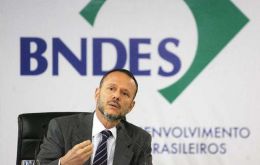
Luciano Coutinho president of Brazil’s state development bank BNDES, said the country has benefited from the recent weakening of its currency and a further drop would be better, according to newspaper Folha de Sao Paulo.
-
Wednesday, May 23rd 2012 - 06:59 UTC
Brazilian Real falls to a new three-year low, “positive” for exporters says minister
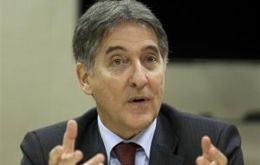
The Brazilian Real fell to a new three-year low after briefly erasing its decline as the central bank sold currency swap contracts for the second time in three trading sessions, holding two auctions on Tuesday.
-
Tuesday, May 15th 2012 - 02:30 UTC
Brazil’s Real falls to 2 per dollar, lowest since 2009; government overwhelmed
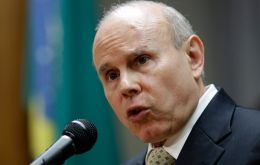
Brazil’s Real tumbled to 2 per dollar for the first time in almost three years as Finance Minister Guido Mantega said the exchange rate doesn’t worry the government, opening expectations the currency may fall further.
-
Tuesday, April 10th 2012 - 16:30 UTC
Brazil targets a dollar floor of 1.80 Reais and questions private banks attitude

Having a floor of 1.80 Real to the US dollar is no great thing, but it is a target to sustain said Brazil Development, Industry and Foreign Trade minister Fernando Pimentel referring to the latest announcements to promote Brazilian industry battered by a strong currency and massive inflow of ‘cheap’ imports.
-
Tuesday, March 13th 2012 - 07:26 UTC
Brazil extends 6% tax on foreign loans and bonds to help weaken the Real
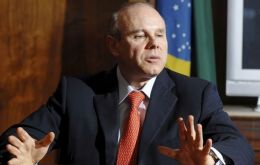
Brazil extended on Monday a 6% tax on foreign loans and bonds issued abroad by local companies to include lending with duration of as long as five years, the third measure taken this month to weaken the Real. Since March 1, the currency has weakened 5.6%.
-
Thursday, March 8th 2012 - 06:06 UTC
Brazilian surprise: basic rate down to 9.75%, lowest in years
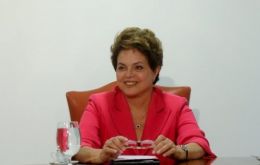
Brazil’s Central bank on Wednesday surprised analysts by accelerating the pace of interest rate cuts, bringing borrowing costs to 9.75%, below 10% for only the second time on record as it seeks to revive growth.
-
Tuesday, March 6th 2012 - 17:06 UTC
Brazil growth in 2011, slowest since 2003, but 2 million jobs were created
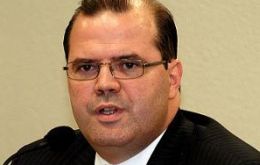
The Brazilian economy last year registered its second-worst performance since 2003 as higher borrowing costs and a currency that rallied to a 12-year high led it to under-perform emerging-market peers China and India.
-
Tuesday, January 17th 2012 - 07:00 UTC
Brazil economy rebounds in November boosted by domestic consumer spending

Brazil’s economy grew at its fastest pace in 19 months in November, reversing a three-month contraction, as a recovery in consumer spending helped Latin America’s largest economy shrug off a global slowdown. Yields on interest rate futures rose.
